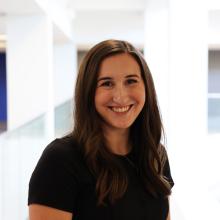Faculty



Sign up for Fall 2025 Registration Day Registration Day | Northeastern Junior College
Business and Accounting careers offer so many options that narrowing it down can be difficult. As you start your education at Northeastern, we’ll listen to you and guide you through the decision process. You don’t have to walk through the door knowing your final destination.
Northeastern Business and Accounting programs offer small class sizes (15-25 students), flexible options (face-to-face, hybrid, online), and personalized advising with a Business/Accounting faculty member.
We offer degrees that you can complete in two years and take straight to the workforce or transfer to a four-year college. We also provide a pathway for students with technical training (welding, automotive, diesel, cosmetology, wind, automation, etc.) to earn a degree in Applied Management.

Our programs are flexible and allow you to finish on time if you change your degree or certificate option. Below is a snapshot of the Business/Accounting programs we offer.
| Certificate | AAS | AA | |
|---|---|---|---|
| I want to start my own business | X | ||
| I need more training to climb the corporate ladder | X | X | X |
| I plan to transfer to a four-year university | X | ||
| I am an Northeastern athlete | X | X | |
| I have an industry certification | X | X | |
| I'm returning to work for a 2nd or 3rd career | X | X | |
| I'm just trying to get my foot in the door | X | X | |
| I plan to be a bookkeeper or accountant | X | X | X |
| I want to go into business but am undecided on my final destination | X | X | X |
According to the Bureau of Labor Statistics, employment of accountants and auditors is projected to grow 4 percent from 2022 to 2032, about as fast as the average for all occupations.
About 126,500 openings for accountants and auditors are projected each year, on average, over the decade. Many of those openings are expected to result from the need to replace workers who transfer to different occupations or exit the labor force, such as to retire.
Globalization, a growing economy, and a complex tax and regulatory environment are expected to continue leading the strong demand for accountants and auditors.
In general, employment growth of accountants and auditors is expected to be closely tied to the health of the overall economy. As the economy grows, these workers will continue being needed to prepare and examine financial records. In addition, as more companies go public, there will be greater need for public accountants to handle the legally required financial documentation.
The continued globalization of business may lead to increased demand for accounting expertise and services related to international trade and international mergers and acquisitions.
Technological change is expected to affect the role of accountants over the projections decade. Some routine accounting tasks may be automated as platforms such as cloud computing, artificial intelligence (AI), and blockchain become more widespread. Although it will increase accountants' efficiency, this change is not expected to reduce overall demand. The automation of routine tasks, such as data entry, will instead make accountants' advisory and analytical duties more prominent.
The U.S. Bureau of Labor Statistics lists the median annual wage for accountants and auditors was $78,000 in May 2022. The median wage is the wage at which half the workers in an occupation earned more than that amount and half earned less. The lowest 10 percent earned less than $48,560, and the highest 10 percent earned more than $132,690.
In May 2022, the median annual wages for accountants and auditors in the top industries in which they worked were as follows:
| Finance and insurance | $81,020 |
| Management of companies and enterprises | $80,260 |
| Accounting, tax preparation, bookkeeping, and payroll services | $78,320 |
| Government | $77,440 |
Most accountants and auditors work full time. Longer hours are typical at certain times of the year, such as for quarterly audits or during tax season.
High School Articulation Agreements
High School of Business Articulation Agreements
Colorado Guaranteed Transfer courses.
The Associate of Arts Business (DwD) participates in the Colorado Guaranteed Transfer Agreement and is accepted by all public universities and some private universities in the state.
Please contact the Business Department for specific information regarding the Articulation Agreement with your school.


